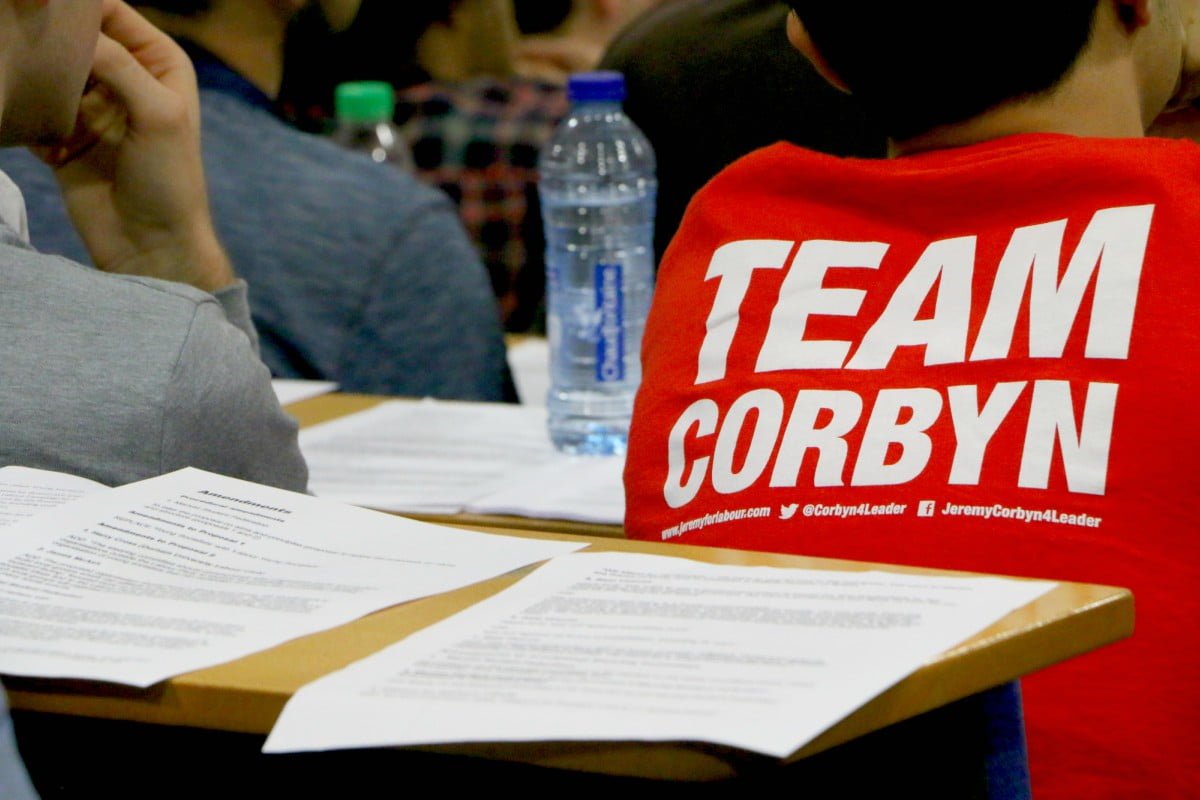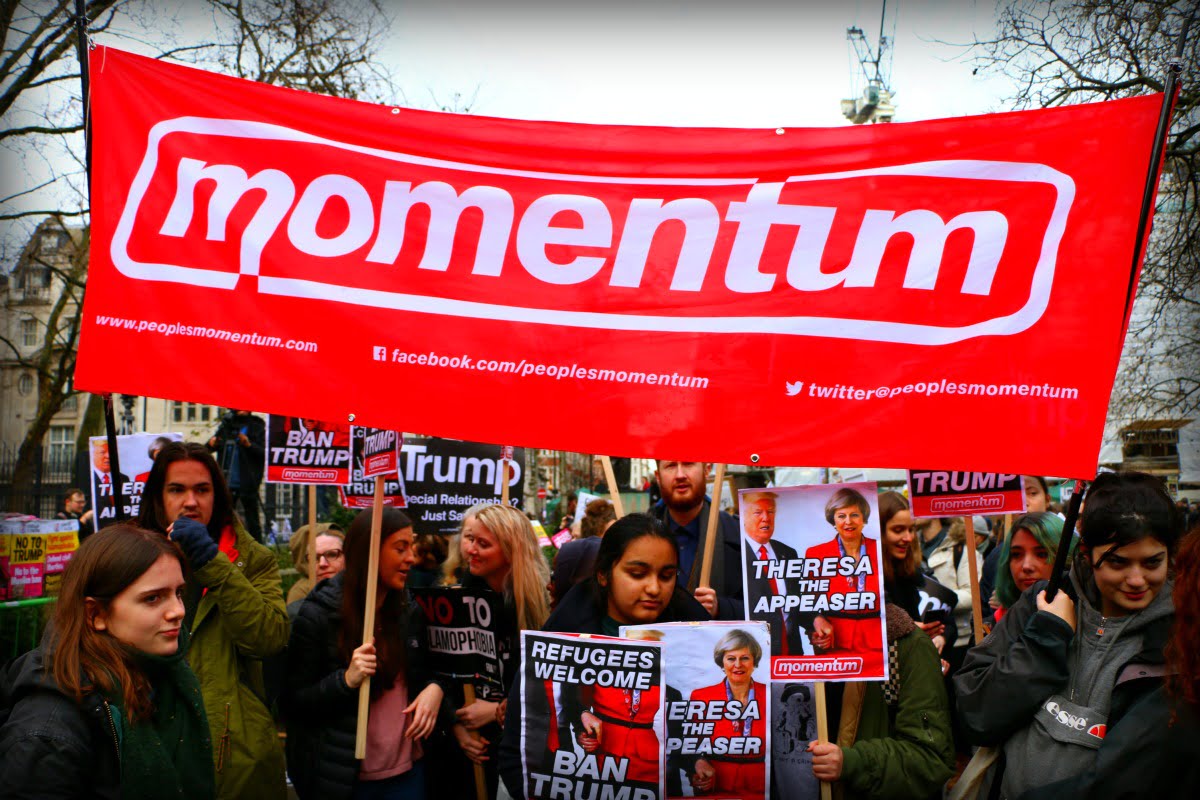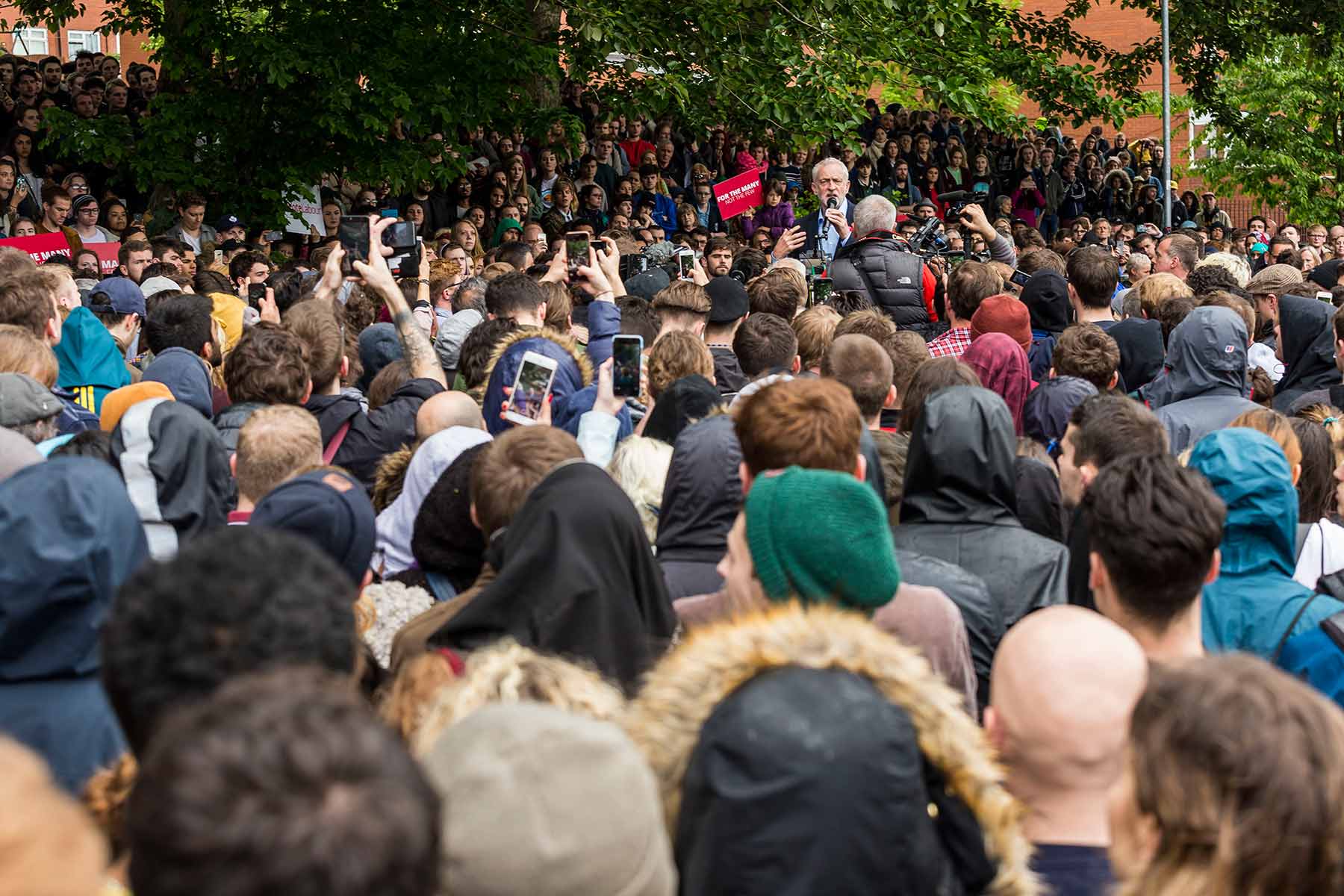This Saturday (3rd February) sees the regional AGM of Young Labour in London. Matt Rider of Swansea West CLP discusses the steps Young Labour needs to take in order to capitalise on the enthusiasm and energy of the Corbyn ‘youthquake’.
One decade on, the tidal wave of the 2008 financial crash has left a wake of political repercussions across the globe. The ruling class has failed to paper over the cracks that now run deep into the foundations of the global economy.
Britain, traditionally a bastion of stability, has quickly become one of the most unstable countries in Europe. The Brexit vote and the results of the 2017 general election have left the Establishment split and disorientated. The Tories are in a state of civil war; the Prime Minister, Theresa May, presides over a ‘weak and wobbly’ ramshackle government.
Millions of people have found inspiration in Jeremy Corbyn’s programme, and the political momentum has almost overnight swung behind the Labour Party. Labour members, along with swathes of new supporters, are filled with elation and confidence. The question has changed from if Corbyn could become the Prime Minister, to when he will.
Hammered by capitalism
 The main demographic inspired into engaging with politics are young people. Many are doing so for the first time, now a real alternative had been presented to them.
The main demographic inspired into engaging with politics are young people. Many are doing so for the first time, now a real alternative had been presented to them.
Young people have been hammered hard by the crisis of capitalism. This generation is the first to face worse prospects than their parents.
Youth poverty has reached an all time high, with homelessness amongst young people reaching unprecedented levels. A lifetime of debt awaits university graduates. Many face the very real prospect of unemployment after leaving education. The thought of having a home to call one’s own is nothing more than a pipe dream for the majority of young people in society.
Corbyn’s election campaign was the first in living memory to raise these questions and attempt to provide answers. The Labour manifesto promised to scrap tuition fees, build homes, and end cuts to public services. The youth of Britain therefore felt a sense of ownership over this campaign, and unsurprisingly grasped firmly onto it with both hands.
Alienation vs inspiration
 In general, however, the Labour Party has failed to consolidate this energy into organised activism. Young people have become involved through social media and mass rallies, but not necessarily in real life at meetings, in campaigns, and on the doorstep.
In general, however, the Labour Party has failed to consolidate this energy into organised activism. Young people have become involved through social media and mass rallies, but not necessarily in real life at meetings, in campaigns, and on the doorstep.
The blame for this lies in no small part at the feet of Young Labour. It hardly has any of its own political autonomy, and is treated by the Labour Party machine as being little more than a bloc of foot soldiers.
As a result, it has tended to attract the more careerist elements of the labour movement – those who are seeking a safe job in politics and see Young Labour as a launchpad into Westminster and local government. Internal debate, meanwhile, is largely limited to squabbles and power struggles between cliques. This is extremely alienating and impenetrable for newly inspired youth.
Educate! Agitate! Organise!
Young people want to engage in politics because of big political issues and ideas. Our generation have spent our entire lives suffering at the hand of capitalism and see no way out on the basis of this system. We are questioning the very fabric of our society. Why are we oppressed and exploited? Where does this oppression and exploitation come from? And, most importantly, how can we put an end to it?
Young Labour must cut through the inward-looking bureaucratic cliquiness by turning outwards and discussing the dominant questions of our time. It must raise its sights and debate these issues in order to become the powerful force that it should – and could – be.
By providing a bold socialist programme, Young Labour could be a lightning rod for angry and passionate youth and students, taking the lead on campaigns around the issues which matter to them: housing, education, healthcare, and jobs.
Recent history provides a shining example of this. In the 1970s and 80s, the Labour Party Young Socialists (Labour’s former youth wing) brought huge numbers of young people into the Party by providing a socialist answer on the vital questions of the time. It was a powerful campaigning force, linking up with the wider labour movement and working class.
By returning to these principles, Young Labour can mobilise thousands of young people and once again become a focal point for those who want to get rid of this oppressive and exploitative capitalist system.






